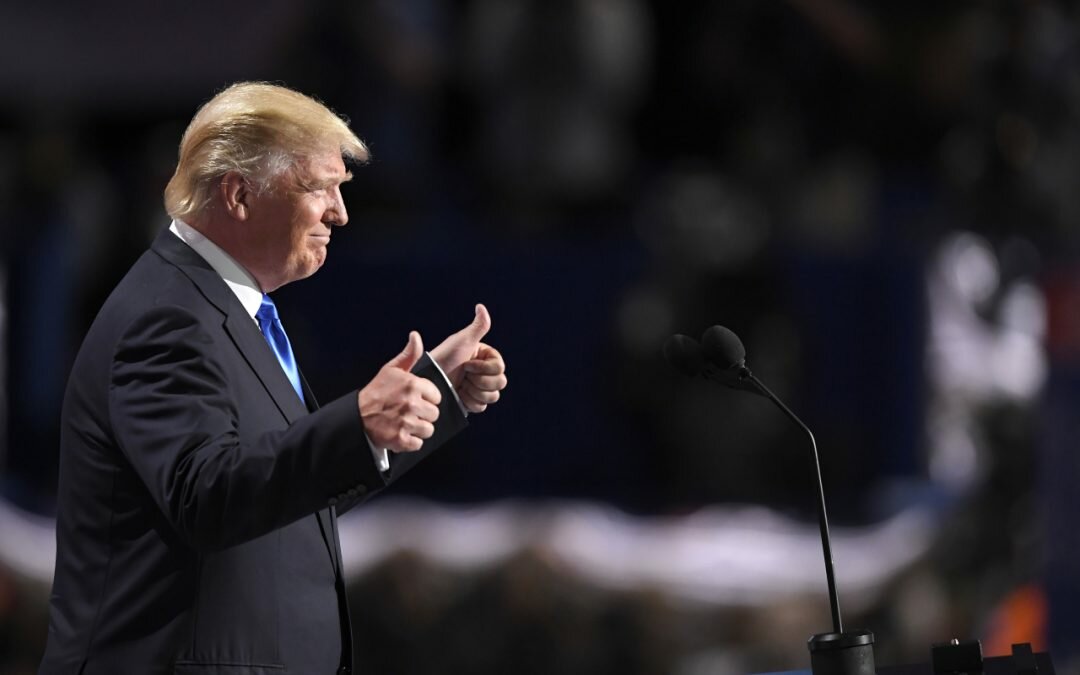Donald Trump has been the elected President of the United States for a year. As inconceivable as it seemed to his opponents before his election, it is a fact. Their difficulty in coping with it is entirely their problem.
What we as European conservatives should be asking ourselves is what Trump’s victory means in the long term, and what we on this side of the Atlantic can learn in our own fight to reclaim the political narrative.
First, it needs to be frankly acknowledged that, though Trump’s campaign and the victory it brought him were revolutionary in many respects, those elements have been largely sidelined in favour of a more conventional Republican policy platform and personnel. To an extent this was inevitable, as the necessity of working with Congress would have always required a shift towards the mainstream Republican goals of lower tax and smaller government. The appointment of experienced administrators like General John Kelly to the administration, over clever but mercurial campaign chiefs like Steve Bannon, are a reflection of this new priority. The signs are that Trump will be much more of a traditional Republican president than either his friends or foes expected.
However, what is most interesting about Trump from a political standpoint is his success as an insurgent: both within the Republican Party and nationally. In this respect, it is clear now to all but his most diehard detractors that the election of Trump was a voter rebellion: a revolt against the long-term and growing repressiveness of progressive-leftist dogma – ever-present since the ‘60s and becoming ever-more demented – and in favour of his radical programme of a renewed American nationalism, embodied in a commitment to infrastructure spending, protection of the country’s territorial integrity and a renaissance of traditional American values.
Trump’s particular gift was a remarkable fearlessness in saying the things which had been thought up to then to be unsayable. This was a crucial part of his success in the Republican primaries where establishment favourites, such as Jeb Bush, were indulging in the usual conservative fallacy of pandering to their enemies, such as Bush’s description of illegal immigration across the Mexican border as “an act of love.” Trump made short work of such feebleness, and did not spare another member of the clan, President George W. Bush, correctly condemning his neo-con adventurism in Iraq and proposing a foreign policy based primarily on America’s national interests rather than liberal internationalism.
Trump, under the guidance of Steve Bannon and Stephen Miller, had adopted some of the most insidious tactics of the progressive-left in order to prevail against them. Instead of assuming he needed the approval of his political enemies and appealing to them, as has been customary in conservative politicians for decades, Trump temporarily adopted the New Left’s identity politics and unashamedly aligned himself with the interests of the white working class – long disdained by their traditional Democrat representatives and especially by Hillary Clinton, who seemed to rejoice in dismissing the people who had once been the mainstay of her husband’s election victories. His uncompromising language on the campaign trail was also a tactic borrowed from the Left, who make a point of never making overtures towards their political opponents.
Yet it was Trump’s insight into the mind of working-class America which was his greatest asset. Indeed, his opponents’ greatest error was probably their assessment of Trump as a playboy plutocrat, overlooking his blue-collar roots as the son of a builder. These origins seem to have enabled him to understand the visceral unease of ordinary Americans faced with the elite project of globalisation. After years of being fobbed off with platitudes about the opening-up of the world after the fall of the Iron Curtain, most workers had perceived that they were the losers in the process, and just in time for Trump’s candidacy.
These were all important factors in Trump’s insurgency which those who wish to emulate him might usefully ponder. But it was his remarkable speech in Warsaw this summer which seems to speak most powerfully to the European conservative sensibility; almost as a manifesto for the cultural resurgence of Europe.
Addressing an audience that included the recently-elected conservative Polish government, which had achieved a victory that left not a single Left-wing MP in the Polish parliament, Trump stated that: “The fundamental question of our time is whether the West has the will to survive… if we do not have strong families and strong values, then we will be weak and we will not survive.”
Expanding on his theme, the President asked: “Do we have the confidence in our values to defend them at any cost? Do we have enough respect for our citizens to protect our borders? Do we have the desire and the courage to preserve our civilization in the face of those who would subvert and destroy it?”
It’s not too much to say that, with these forthright words, Trump not only transcended his ‘America First’ campaign platform and reached out to like-minded individuals across the world; but that he also re-energised the conservative vision that has been attacked for so long, and so effectively, that it has almost been lost. Family, faith, and culture. These are the basis of our civilisation, along with our values, our art, and our liberties. Trump’s speech, delivered in his straightforward words and manner, challenged us to defend what others are so determined to attack. It may well be his most lasting achievement.
The opinions expressed in this article are those of the author and do not necessarily reflect the views of the Burkean Journal.

